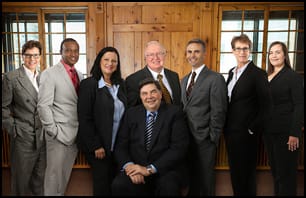Blowing the Whistle on Fraud Against the Government
Blowing the whistle on conduct that results in the federal or a state government entity being defrauded is never easy. Yet, many people who have inside knowledge of such illegal conduct take such a principled step every year, even though they risk retaliation by the government contractor or a vendor to the contractor. And sometimes those brave whistleblowers are rewarded. The False Claims Act and various state false claims acts permit private parties with inside information to file qui tam actions alleging that a government contractor engaged in fraud against a government entity.
In a qui tam suit under the federal False Claims Act, the private party whistleblower is called a relator, and the government is the real party in interest, and thus is the plaintiff. A federal relator first files suit in federal District Court under seal such that only the relator and the government know about it. After a case is filed, the U.S. Department of Justice and the local District Attorney have 60 days to investigate and decide whether to intervene. Typically, however, the government requests at least one extension.
If the government intervenes in the case brought by the relator, it takes the lead in the case. If the government obtains a monetary recovery, the relator receives between 15% and 25% of the recovery, and if the government does not intervene, the relator may continue to litigate the case on his or her own, and if there is a recovery, the relator may achieve a recovery up to 30% of the government’s award.
In certain circumstances, an employee who blows the whistle on his or her employer’s government fraud, and then encounters retaliation, including termination of employment, may bring a separate claim to recover compensation related to the retaliation. If you find yourself in a situation where you have knowledge of government fraud and need to make a tough decision about what to do with that information, you should consider contacting E&U attorney Charlie Firth at 612.455.7724 before taking the next step.

